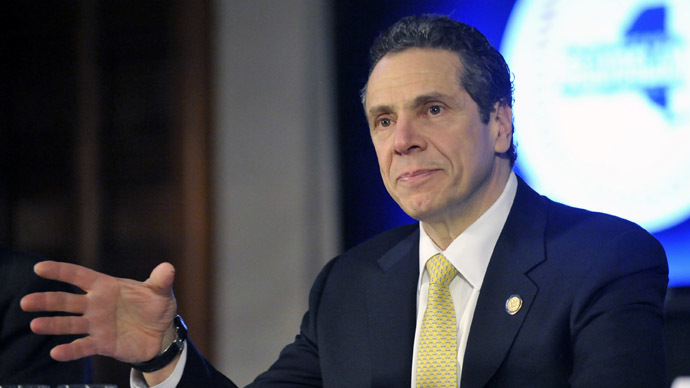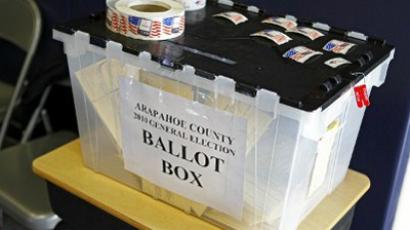New York joins fight to elect US president by popular vote

New York Governor Andrew Cuomo has signed legislation that could help revamp future presidential elections by agreeing to award the state’s 29 electoral votes to the candidate that is most favored on a national level.
The addition of Gov. Cuomo’s signature to a bill on Tuesday adds New York to a list of states who are signing on to what’s known as the National Popular Vote movement, joining ten other jurisdictions: California, the District of Columbia, Hawaii, Illinois, Maryland, Massachusetts, New Jersey, Rhode Island, Vermont and Washington.
Currently, the United States presidential election is decided every four years by accounting for all the ballots cast in each of the 50 states (and DC) and then awarding the winning candidate with the electoral votes allocated to that specific region. During the 2012 election, for example, incumbent Barack Obama received roughly 63 percent of the popular vote in New York and was thusly awarded all 29 of the Empire State’s electoral votes; challenger Mitt Romney received zero electoral votes, despite garnering the support of more than one-third of voters in the state.
According to the US Constitution, every state has the right to award its electoral votes in any manner it deems appropriate. But New York is now the latest state to speak out against the current procedure and says it will pledge its 29 electoral tallies to whoever wins the popular vote nationally. Instead of awarding those 29 points to the person who performs best in New York — a traditionally democratic, or “blue” state — it will go to the candidate that collected the most support on a national scale.
“With the passage of this legislation, New York is taking a bold step to fundamentally increase the strength and fairness of our nation’s presidential elections,” Governor Cuomo said in a statement that accompanied his signing of the bill this week. “By aligning the Electoral College with the voice of the nation’s voters, we are ensuring the equality of votes and encouraging candidates to appeal to voters in all states, instead of disproportionately focusing on early contests and swing states."
“Joining the compact gives us leverage over presidential candidates,” added State Sen. Joseph Griffo (R-Rome). “Collectively, we say: You can no longer take our states for granted. You can no longer effectively disenfranchise millions of Americans by ignoring us. And you can no longer assume our vote is yours.”
Combined, the 11 states that have agreed to the national popular vote pact have a total of 165 electoral votes, with New York’s 29 being the second most pledged behind California’s 55.
Election Day isn’t going to dramatically change just yet, however. The 11 states involved won’t formally adopt the new rule until it has a combined total of 270 electoral votes. The addition of New York to the group has officially bumped the count past the half-way mark, though, and now the movement has 61 percent of the electoral votes needed.
Hendrik Hertzberg — a writer for the New Yorker who has written exhaustively on the National Popular Vote movement — said this week that it’s “quite possible — even probable” that the 270 electoral votes will be collected in time for the 2020 presidential race, if not sooner.
Speaking to Democracy Now! this week, Hertzberg said the addition of New York is an “important step” in the movement.
“New York is the media capital. Things don’t really happen in the brain of the media until they happen in New York,” he said. “So even though California, New Jersey [and the] state of Washington — even though all these other states have already signed on, it’s only now starting to raise to the level of some sort of public attention.”
”I am particularly heartened to sign this legislation as it embodies both in process and substance the Empire State’s tradition as a national progressive leader,” Gov. Cuomo said of the news. “I am pleased to add New York to the growing list of states who have joined together to make this reform a reality.”














